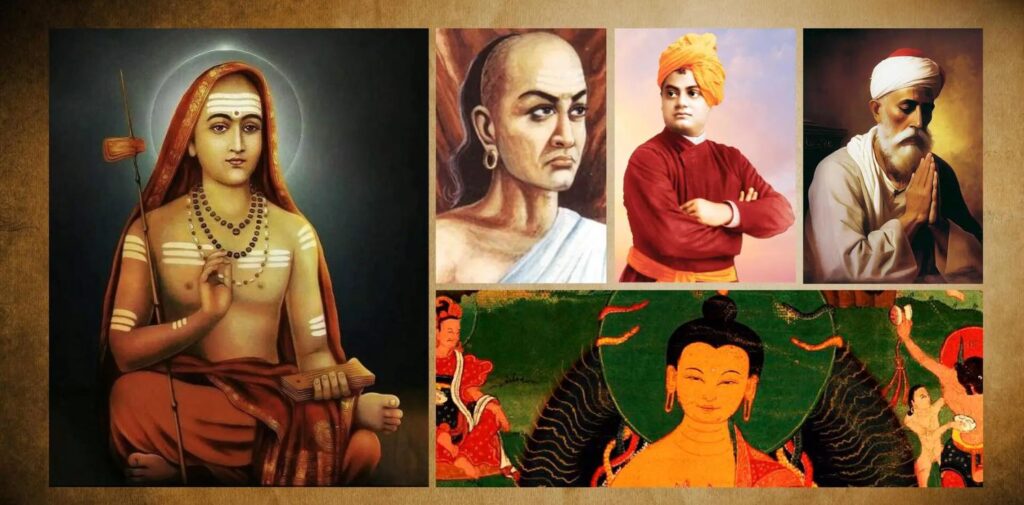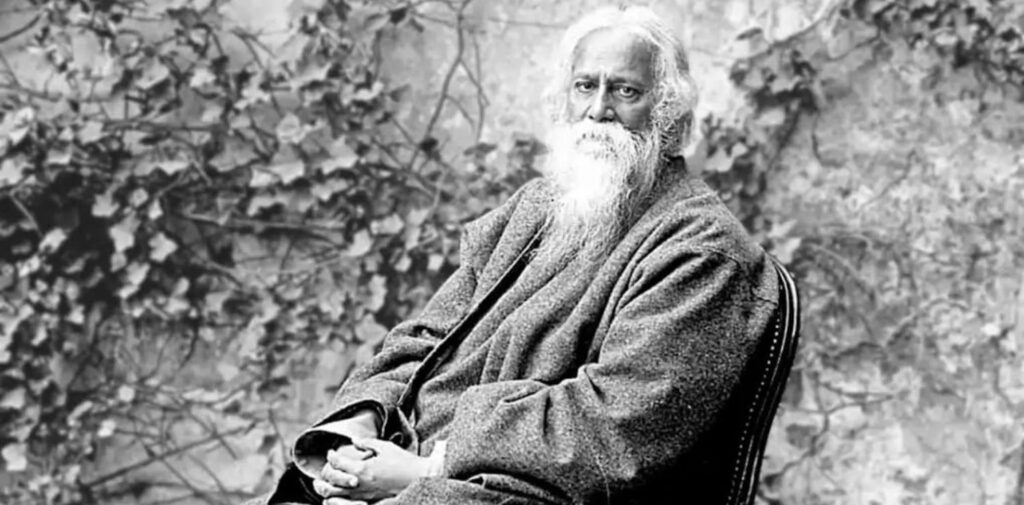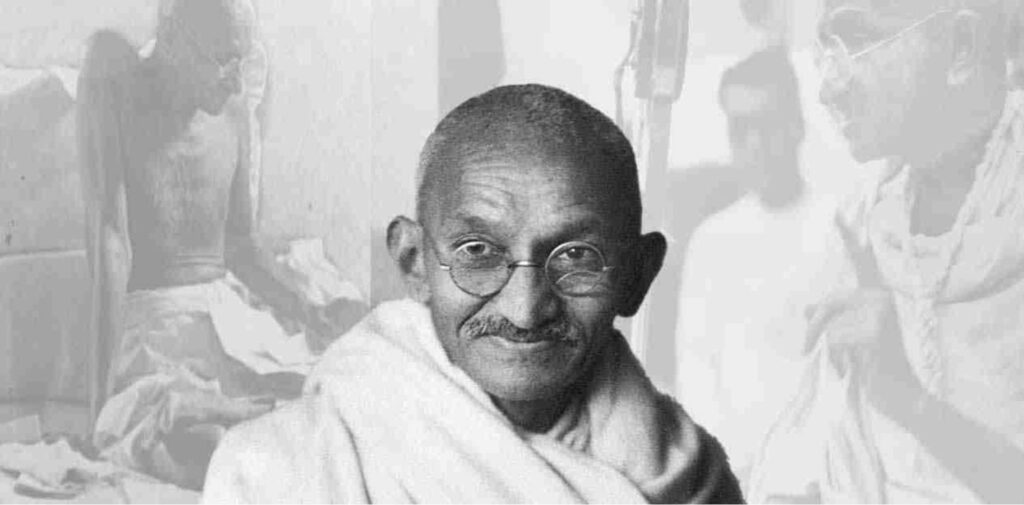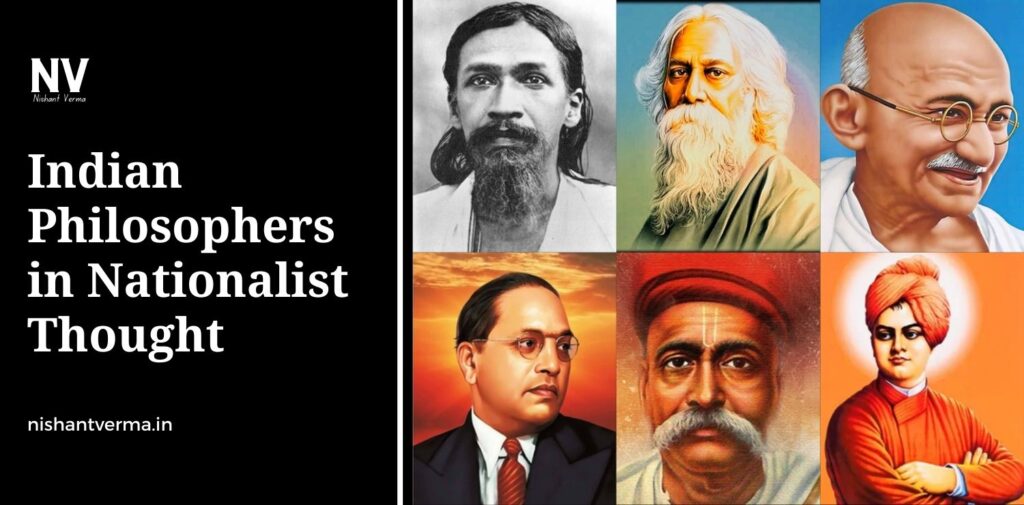India’s journey to independence from British colonial rule was not just a political battle but also an intellectual and philosophical struggle. While leaders such as Mahatma Gandhi, Jawaharlal Nehru, and Subhas Chandra Bose led the movement with their political actions, Indian philosophers played an equally important role in shaping nationalist thought. They provided the ideological foundation for the independence movement, inspired millions of Indians to fight for their rights, and helped to create a sense of unity among a diverse population.
Indian philosophers, through their writings and teachings, encouraged self-awareness, pride in India’s rich cultural heritage, and the importance of fighting for justice, equality, and freedom. This article will explore the significant role Indian philosophers played in the nationalist thought process, highlighting the impact of their ideas on India’s struggle for independence.
The Philosophical Roots of Nationalism
The roots of Indian nationalist thought can be traced back to ancient Indian philosophy. For centuries, the Indian subcontinent had been home to a rich tradition of philosophical and spiritual thought, with key contributions from texts such as the Vedas, Upanishads, Bhagavad Gita, and Ramayana. These texts emphasized ideas like justice, dharma (duty), and the importance of truth, which became core principles in the fight for independence.
However, in the colonial period, Indian philosophers were tasked with reinterpreting these ancient ideas to provide a modern framework for resistance against foreign rule. They began to challenge the colonial narrative, which portrayed India as culturally and intellectually inferior. They emphasized India’s ancient contributions to science, philosophy, and culture, asserting that India’s strength lay in its traditions, spirituality, and unity.

Key Philosophers Who Shaped Nationalist Thought
Several key philosophers and thinkers played an influential role in the development of Indian nationalist thought. Their writings and ideas inspired leaders, thinkers, and the masses to fight for independence and social change.
Swami Vivekananda: The Power of Spiritual Nationalism
Swami Vivekananda, one of the most influential philosophers in modern India, played a significant role in shaping the nationalist consciousness. Vivekananda’s teachings emphasized the unity of India’s spiritual and cultural traditions and the importance of self-reliance for national progress.
At the 1893 Parliament of World Religions in Chicago, Vivekananda gave a historic speech that brought global recognition to India’s spiritual heritage. He declared that the true strength of India lay in its spiritual teachings and emphasized the need to revive these ancient traditions. Vivekananda’s call for a spiritual and cultural renaissance of India inspired a generation of young Indians to look inward and rediscover their national pride.
He believed that true nationalism could not be achieved without social reform, including the upliftment of the marginalized sections of society. His ideas influenced future leaders like Subhas Chandra Bose, who viewed nationalism not just as a political struggle but as a movement to bring about social and spiritual renewal.

Rabindranath Tagore: Nationalism and Humanism
Rabindranath Tagore, a Nobel laureate and a prominent philosopher, had a deep impact on the intellectual landscape of India’s independence movement. While Tagore was deeply nationalistic, his brand of nationalism was more inclusive and humanistic than the narrow, exclusionary nationalism that some of his contemporaries advocated.
Tagore believed that the true essence of India lay in its cultural diversity, and he rejected the idea of violent resistance to British colonialism. He emphasized the need for moral and intellectual awakening through education and dialogue. Tagore’s writings often expressed his concerns about the impact of colonialism on Indian society, and he argued for the need to restore India’s dignity and pride without resorting to hatred or violence.
Tagore’s philosophical works, such as his poems, essays, and songs, conveyed the message of universal humanism and the importance of nurturing the inner strength of individuals. His ideas inspired many nationalist leaders to focus on the importance of social and cultural freedom as a means of achieving political freedom.
Bal Gangadhar Tilak: Nationalism Through Cultural Identity
Bal Gangadhar Tilak was another philosopher who significantly shaped Indian nationalist thought. Known for his slogan, “Swaraj is my birthright,” Tilak was a strong advocate for self-rule and independence. However, his approach to nationalism was rooted in the revival of India’s ancient cultural and religious traditions.
Tilak emphasized the importance of Hindu nationalism, but not in an exclusionary way. He argued that India’s strength came from its rich history, religion, and culture. By invoking religious symbols like the festivals of Ganesh Chaturthi and Shivaji Jayanti, Tilak galvanized the masses and gave them a sense of unity and purpose. His idea of nationalism was intertwined with the revival of India’s cultural identity, which had been suppressed by British colonialism.
While Tilak believed in the importance of self-rule, he also advocated for the active participation of Indians in the political and cultural spheres. He was one of the first leaders to recognize the importance of mass participation in the fight for independence and encouraged ordinary people to join the struggle.
Sri Aurobindo: Spirituality and Revolution
Sri Aurobindo, a philosopher, poet, and political leader, was another major figure in the Indian nationalist movement. He combined traditional Indian spirituality with modern concepts of self-realization and freedom. Aurobindo’s philosophy was rooted in the belief that spiritual and political freedom were inseparable.
Aurobindo’s ideas about nationalism were deeply influenced by his experiences with British colonialism. He believed that India’s freedom could only be achieved through a spiritual revolution, in which Indians would rediscover their inner strength and cultural identity. He also advocated for active political resistance, including armed struggle if necessary, against British rule. However, Aurobindo’s emphasis on spiritual empowerment gave the nationalist movement a unique dimension, where freedom was not just a political goal, but a personal and spiritual journey.
His famous writings, including his work The Life Divine, inspired many future leaders of the independence movement, including Subhas Chandra Bose and Jawaharlal Nehru. Aurobindo’s concept of spiritual nationalism was particularly influential in the years leading up to India’s independence, as it encouraged people to view the struggle for freedom as a higher cause that transcended mere politics.

Mahatma Gandhi: Non-Violent Nationalism
While Mahatma Gandhi is often associated with political leadership, his philosophical ideas were at the core of his approach to nationalism. Gandhi’s philosophy of Ahimsa (non-violence) and Satyagraha (truth-force) became the foundation of the Indian independence movement. His belief in non-violent resistance inspired millions of Indians to peacefully protest against British rule and demand their rights.
Gandhi believed that India’s strength lay not in violent struggle but in the power of truth and non-violence. His vision of nationalism was rooted in the values of simplicity, self-sufficiency, and rural development. Gandhi’s call for Swadeshi (self-reliance) and his promotion of the Khadi movement emphasized the importance of economic independence as a means of political liberation.
Through his writings, speeches, and actions, Gandhi’s philosophy of non-violent resistance influenced not only the freedom movement in India but also the global civil rights movement.
Philosophical Thought as the Foundation of Nationalism
Indian philosophers like Vivekananda, Tagore, Tilak, Aurobindo, and Gandhi played a critical role in shaping the intellectual landscape of the nationalist movement. Their philosophical ideas provided a framework for understanding the fight for independence as more than just a political struggle. They emphasized the importance of India’s cultural, spiritual, and intellectual heritage and called for a revival of the nation’s identity.
These thinkers helped inspire a generation of leaders and citizens to believe in India’s strength and potential, encouraging them to take action through peaceful resistance, social reform, and political activism. Their ideas helped India’s freedom struggle evolve from a political battle into a movement of national awakening, one that was rooted in self-awareness, pride, and dignity.
Conclusion: Indian Philosophers
The role of Indian philosophers in nationalist thought cannot be overstated. They provided the intellectual fuel for India’s struggle for independence, encouraging the masses to think critically about their colonial subjugation and to find pride in their own identity. Through their writings and teachings, these philosophers inspired political leaders and ordinary citizens alike to fight for freedom in a way that was not just about overthrowing colonial powers, but about restoring India’s cultural and spiritual values.
Their ideas continue to influence the philosophical and political discourse in India and the world. In today’s context, the messages of these philosophers—emphasizing self-reliance, non-violence, and spiritual strength—remain relevant, reminding us that the fight for freedom and justice is not just a political act but a deeply human and philosophical one.




